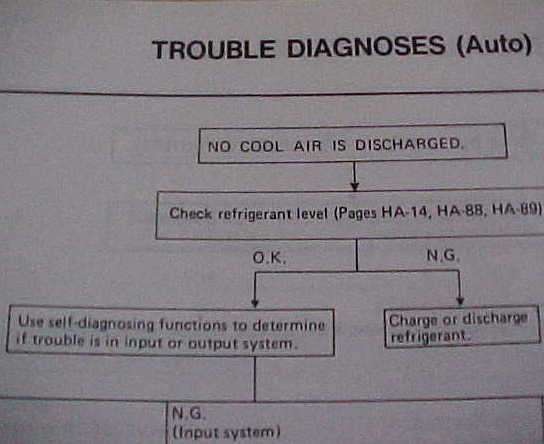300zx AC Repairs
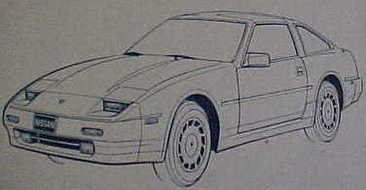 I’ve written a few articles about the repairs my 300ZX required on this site. Every once in a while I get some traffic that is related to this particular automobile. I have sold my Z a few years back but still own the service manual that I purchased so I could fix this Japanese sports car at home.
I’ve written a few articles about the repairs my 300ZX required on this site. Every once in a while I get some traffic that is related to this particular automobile. I have sold my Z a few years back but still own the service manual that I purchased so I could fix this Japanese sports car at home.
One problem that I have not discussed at length on this site would be specific problems with the air conditioning system. My 300ZX was a 1988 model with automatic temperature control. Depending on the year you could get a Z with an easier to fix standard AC system with cable operated slide lever controls.
If you have automatic temperature control (ATC), systems in the early 80s where different than the ones in the late 80s and early 90s. Electrical problems such as failed automatic amplifiers can be difficult to diagnose. I decided to poke around the Internet a little bit to see what kind of problems people were having with their 300ZX air-conditioning repairs. I saw more than a few people talking about airflow problems.
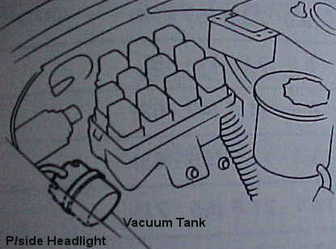 To be more specific, how the air would flow from the dash vents at idle but when they started to drive it would switch over to the defroster area. This is one problem I experienced with my Z as well. By now these cars are getting pretty old and any original vacuum lines have at this point probably deteriorated. Replacing the vacuum lines is a good place to start.
To be more specific, how the air would flow from the dash vents at idle but when they started to drive it would switch over to the defroster area. This is one problem I experienced with my Z as well. By now these cars are getting pretty old and any original vacuum lines have at this point probably deteriorated. Replacing the vacuum lines is a good place to start.
I did so with my car. But this did not take care of the issue. The vacuum storage tanks started to leak and would not store vacuum. At idle there was plenty to hold the air direction control doors in their proper position but as you step on the gas pedal you start to lose manifold vacuum and that is where the storage tank comes in. It stores up extra negative pressure for when the car is not producing it. If the Z blows all air out the defroster you need to check the vacuum system first.
300ZX Air Blows Warm
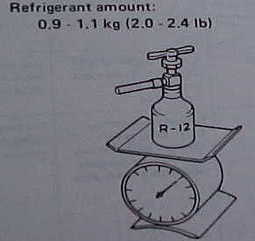 As I mentioned above these cars are getting pretty old at this point. Nissan did a great job with the air-conditioning system but they are still the old R12 type systems unless a conversion has been performed. This can cause a problem if you need a recharge. It is recommended that the system be converted to the more environmentally friendly R134A. This also opens a whole can of worms because now instead of a simple charge you need to do a major conversion.
As I mentioned above these cars are getting pretty old at this point. Nissan did a great job with the air-conditioning system but they are still the old R12 type systems unless a conversion has been performed. This can cause a problem if you need a recharge. It is recommended that the system be converted to the more environmentally friendly R134A. This also opens a whole can of worms because now instead of a simple charge you need to do a major conversion.
I don’t want to go down the rabbit hole of exactly how to convert your car to 134A because I have already discussed that on my other site. You can see the basics of what is required by viewing this article on how to convert from r12. Instead for this article I wanted to post some pictures of the diagnostic charts that are in the service manual that you can follow when no cool air is discharged from the vents.
I will post some sample pictures from the service manual that I own but there are about 50 or 60 different charts that you could follow for different conditions. My point is you might want to get a service manual if you own one of these cars because the information contained in them is hard to beat. Some of the online repair manuals like Mitchell’s E auto repair are available for older 300ZX’s.
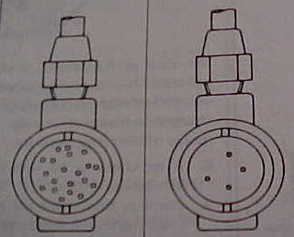 The first box in chart 1 says check refrigerant level. Then they refer you to a page that has a picture of the sight glass. Of course modern systems don’t use the sight glass anymore but if you have one it’s a quick way to determine what the refrigerant level is. Lots of bubbles means the system is low. A few bubbles is good. If there is no bubbles either the system is overcharged or completely empty. The picture on the left is what a sight glass looks like.
The first box in chart 1 says check refrigerant level. Then they refer you to a page that has a picture of the sight glass. Of course modern systems don’t use the sight glass anymore but if you have one it’s a quick way to determine what the refrigerant level is. Lots of bubbles means the system is low. A few bubbles is good. If there is no bubbles either the system is overcharged or completely empty. The picture on the left is what a sight glass looks like.
When you head to the page that shows you how to check the sight glass they also talk about running an AC performance test. This is basically getting a temperature reading from the center vent. This is a good place to start if the air just doesn’t feel cold but is somewhat cool. Sometimes people expect to much from these old Air conditioners. Here is how the test is performed. They recommend indoors (exhaust vented outside) or in a shaded area. Max cooling is selected with recirculation on. Test results are documented with a thermometer at the center vent after 10 minutes of running at 1500 RPMs.
An interesting thing about the chart is the relative humidity matters too what kind of reading you’re going to get from the vents. At 50% humidity on a 95° day the air temperature coming out on Max blower is 62 to 65. If the relative humidity is 70% on a 95° day the temperature output could be as high as 70°. That is not an icy cold output temperature.
To sum it up when you have air-conditioning problems on an older 300ZX what’s wrong with it could be as simple as a broken vacuum line or as complex as an electronic controller if you have automatic temperature control. All of these things could be fine and you might actually have a refrigerant problem or a problem with one of the components that makes the AC operate such as a compressor or a condenser. The nice thing about having a manual is that diagnostic tree charts are provided for these individual conditions based on driver complaints. This leads you in the right direction and turns chaos into logical diagnosis.
